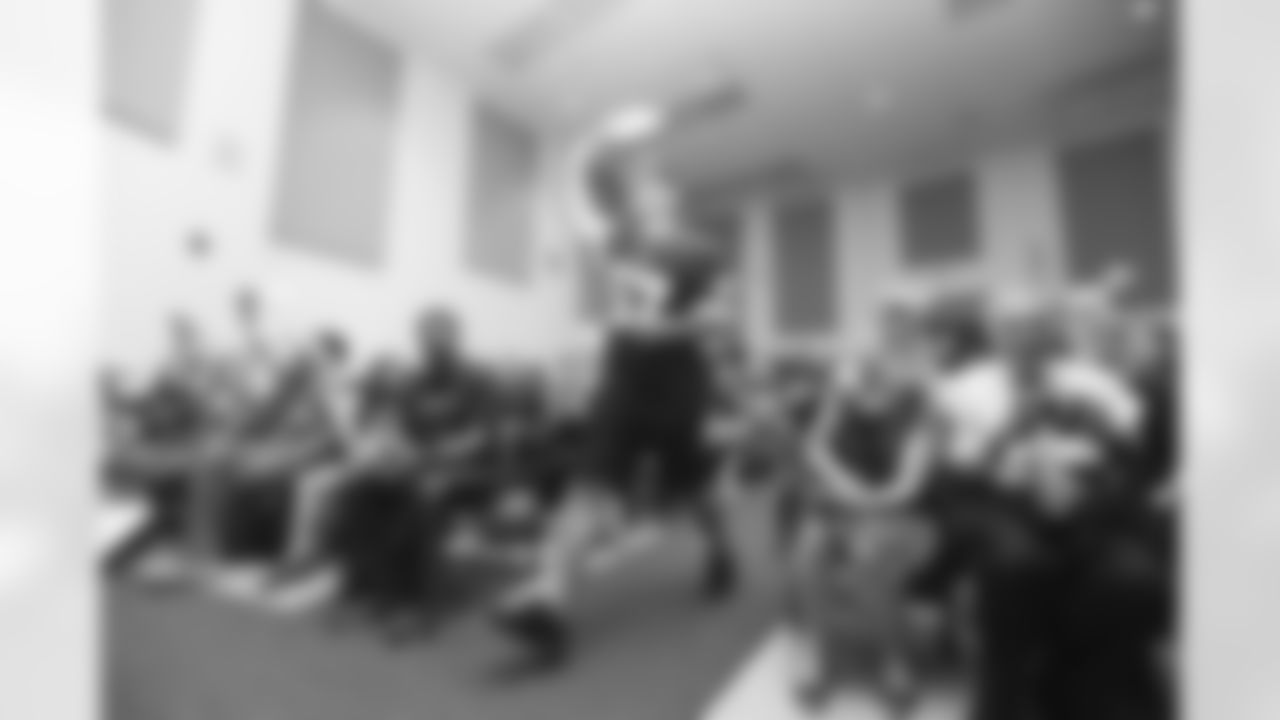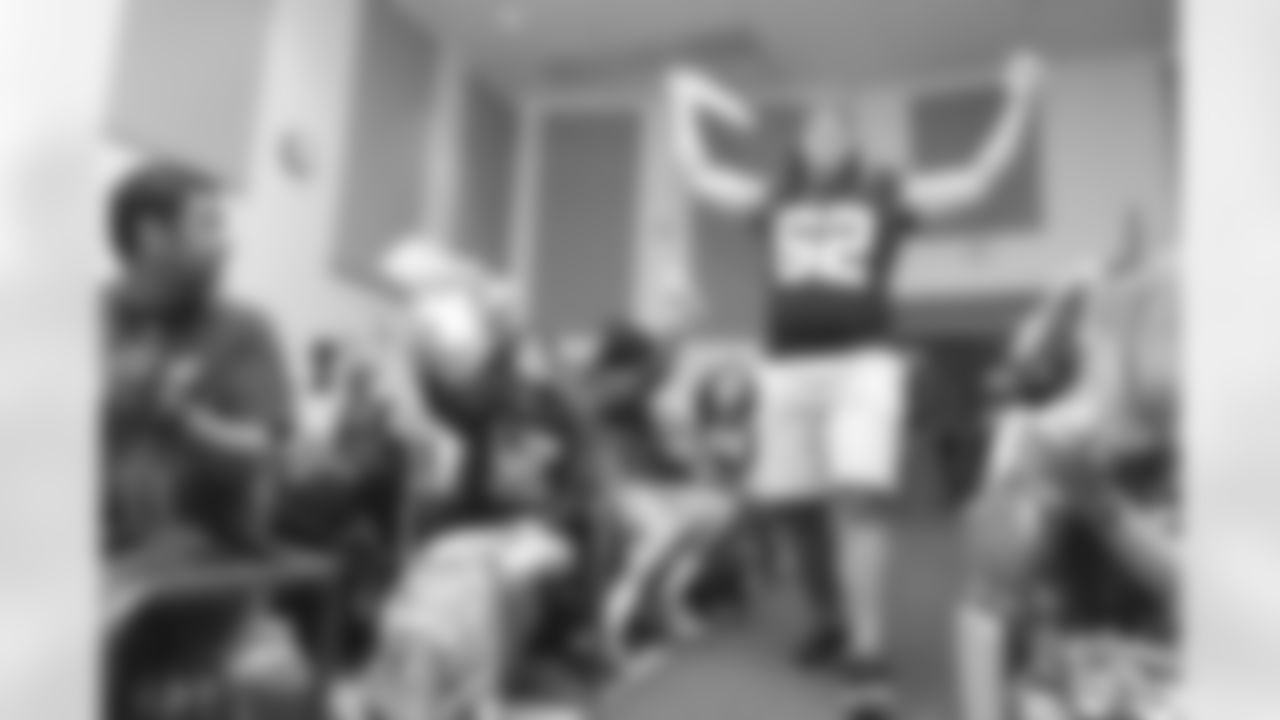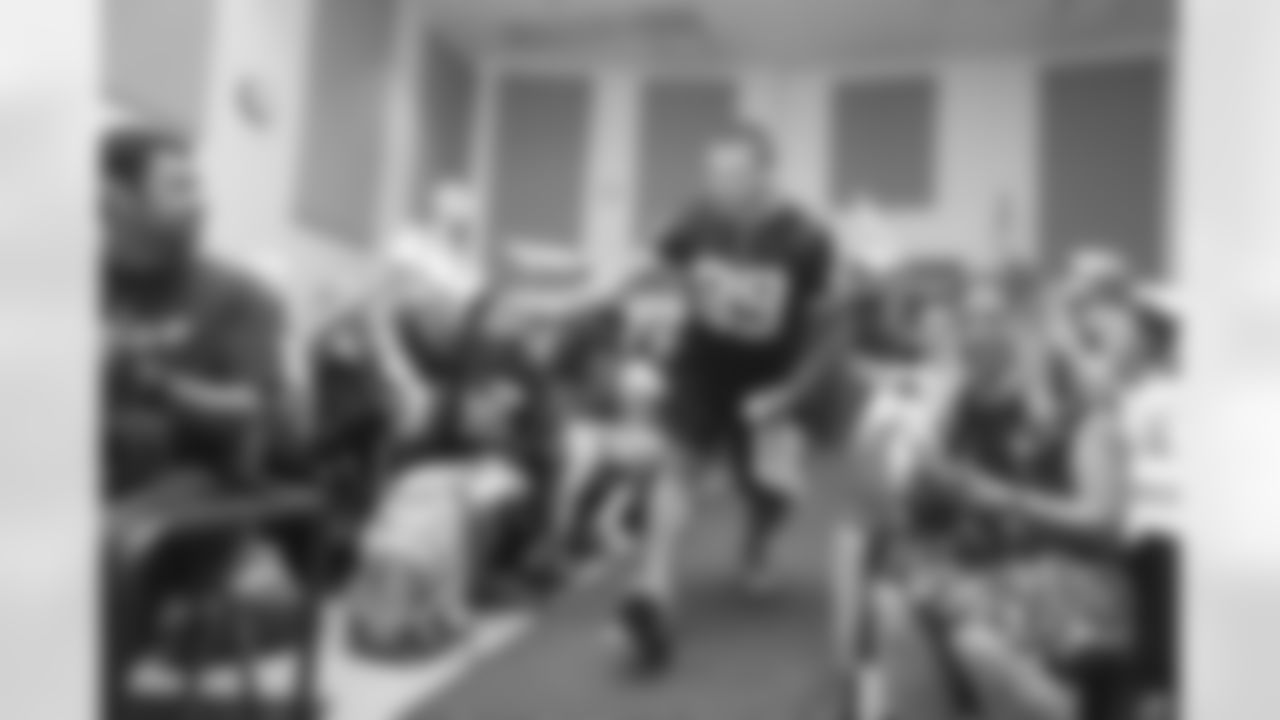Joined by Houston Bates, Derek Carrier, Austin Reiter and Nick Sundberg, the Redskins Charitable Foundation on Friday helped launch the new Character Playbook program at J. Michael Lunsford Middle School.
The Washington Redskins Charitable Foundation, United Way Worldwide and the National Football league have recently partnered to launch Character Playbook, an innovative digital course that provides evidence-based strategies to teach local students how to establish healthy relationships while as middle schools students.
On Friday, May 20, 2016, The Washington Redskins Charitable Foundation and Redskins players visited the 8th grade students of J. Michael Lunsford Middle School, who were piloting a new online character development course.































The initiative is funded by the NFL Foundation, United Way Worldwide and powered by EverFi, an education technology leader that currently works in more than 13,000 K-12 schools and 800 colleges and universities.
On Friday afternoon at J. Michael Lunsford Middle School in Chantilly, Va., linebacker Houston Bates, tight end Derrick Carrier, center Austin Reiter and long snapper Nick Sundberg attended a Character Playbook session before speaking to a student assembly about the importance of communication, face-to-face interaction and being a good teammate among other topics.
The four players started their afternoon by attending a small class setting with students who were going through computer-based problem solving course.
From analyzing influences to stepping into a problem situation to find a solution, the players sat down with the students and assisted them through the course.
Shortly after, they entered an auditorium full of eager students waiting to hear them speak. With the students – many of which were wearing Redskins gear and jerseys of their favorite players -- waving their rally towels, the players received a special welcome from the assembly.
"We all know from experience how a well-conceived playbook and the right team composition can lead to great success," said Kevin Smith, the Chief Financial Officer for United Way of the National Capital Area. "The character playbook initiative is no exception. The character playbook is the first online program of its kind that helps young students develop the skills and strategies necessary to navigate complex decisions and relationships. It covers topics such as character education, communicating effectively, understanding and managing emotions, and resolving conflicts. I think we can all benefit from that kind of education of our lifetime so I'm delighted to be here today to launch this with you."
Larry Michael, Voice of the Redskins, asked the players a series of questions ranging on the importance of good character to being smart with social media interaction.
Recalling previous experiences on the football field, Sundberg said being a person of good character goes a long way in every facet of life.
"One of the first things that a coach looks at is our character, whether or not we are trustworthy, whether or not they can trust us off the field so that we can be on the field when they need us," Sundberg said. "Character is something that is developed when you are young. You guys are in a perfect situation to develop your character in the right way. I think this program is incredible. For you guys to be able to deal with issues in a thought-provoking, constructive manner. I wish I was able to learn those things at your guy's age."
When asked about social media, Bates said his personal philosophy is similar to that of a carpenter. Instead of measuring twice and cutting once, Bates re-reads twice before putting out a tweet or Instagram post.
Also important is being a strong communicator. For Reiter – a second-year center for the Redskins – interacting with teammates and making sure everyone is on the same page is a foundational element of his position.
Off the field, though, Reiter also makes sure to value communication beyond texting and tweeting. He still takes time to send birthday cards to everyone in his family and calls his grandmother whenever he can.
"Communication is huge," Reiter said. "People always think when you are communicating it is through talking, and I am sure you guys are learning through the program that communication is also non-verbal. Body language and everything. You can tell how someone feels just through their look. I studied communication in college and it's extremely rewarding to know one's body language and know how to treat somebody right."
.
.
.














